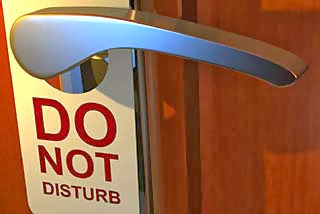A Federal Government employee who was injured in a motel room while having sex with a work colleague, has lost her claim for compensation. She said that during the energetic episode, a light fitting above the bed was pulled from its mount and fell onto her face, injuring her nose, mouth and a tooth and also caused a "psychiatric adjustment disorder." She felt entitled to claim because it happened during a work-related trip to a country town, and at least one judge agreed with her.
The man involved said in his statement "I don't know if we bumped the light or if it just fell off ..... I think she was on her back but when it happened, I wasn't paying attention because we were rolling around."
After a four year legal battle, the case is finally over but lawyers will be arguing about it around dinner tables for a long time, because when you read the fine print, it's complicated.
The government's workplace body ComCare initially accepted her claim but it was later revoked. Then it was upheld by the Administrative Appeals Tribunal. In April 2012, the woman won an appeal and her employer was ordered to pay her court costs. The judge, John Nicholas, said if the woman had been injured playing cards in her motel room, she would get compensation, and the incident was no different.
But ComCare refused to give up and lodged an appeal and said her injuries were not caused "in the course of her employment." Yesterday, the High Court agreed and accepted their argument. Here is part of the their findings.
The High Court allowed Comcare's appeal. A majority of the High Court held that in order for an injury sustained in an interval or interlude during an overall period of work to be in the course of an employee's employment, the circumstances in which the employee was injured must be connected to an inducement or encouragement by the employer.
If the employee is injured whilst engaged in an activity at a certain place, that connection does not exist merely because of an inducement or encouragement to be at that place. When the circumstances of an injury involve the employee engaging in an activity at the time of the injury, the relevant question is: did the employer induce or encourage the employee to engage in that activity? On the facts of the respondent's case, the majority held that the answer to that question was 'no'.


















































